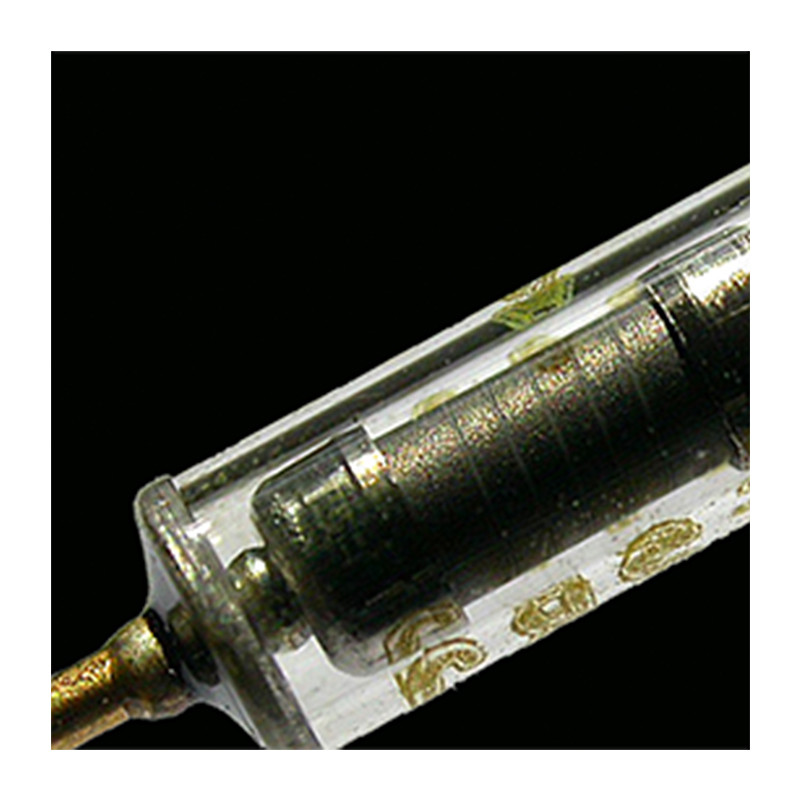

Category


Photos are for informational purposes only. View product specification
please use latin characters
Overview
Metal-to-glass sealing involves heating metal to melt glass in order to form a seal between the two materials. The process is typically used in the production of a lamp bulb or a laser tube to form an air tight seal. Care must be taken when sealing metal to glass due to different expansion rates of the glass and metal upon cooling and after production. Sometimes, a third material such as a polymeric bonding agent is used to create a seal.
Induction
Modern induction heating provides reliable, repeatable, non-contact and energy-efficient heat in a minimal amount of time. Induction provides the necessary control and accuracy to focus the heat to a specific area of the part. Solid state RF induction can be used to efficiently and repeatedly heat a metal and subsequently melt glass to form a seal.
Typical RF power supplies for metal-to-glass sealing range from 1 to 20 kW, depending on the material and application requirements.
Are you interested in this product? Do you need additional information or individual pricing?
Overview
Metal-to-glass sealing involves heating metal to melt glass in order to form a seal between the two materials. The process is typically used in the production of a lamp bulb or a laser tube to form an air tight seal. Care must be taken when sealing metal to glass due to different expansion rates of the glass and metal upon cooling and after production. Sometimes, a third material such as a polymeric bonding agent is used to create a seal.
Induction
Modern induction heating provides reliable, repeatable, non-contact and energy-efficient heat in a minimal amount of time. Induction provides the necessary control and accuracy to focus the heat to a specific area of the part. Solid state RF induction can be used to efficiently and repeatedly heat a metal and subsequently melt glass to form a seal.
Typical RF power supplies for metal-to-glass sealing range from 1 to 20 kW, depending on the material and application requirements.
Your review appreciation cannot be sent
Report comment
Report sent
Your report cannot be sent
Write your review
Review sent
Your review cannot be sent
